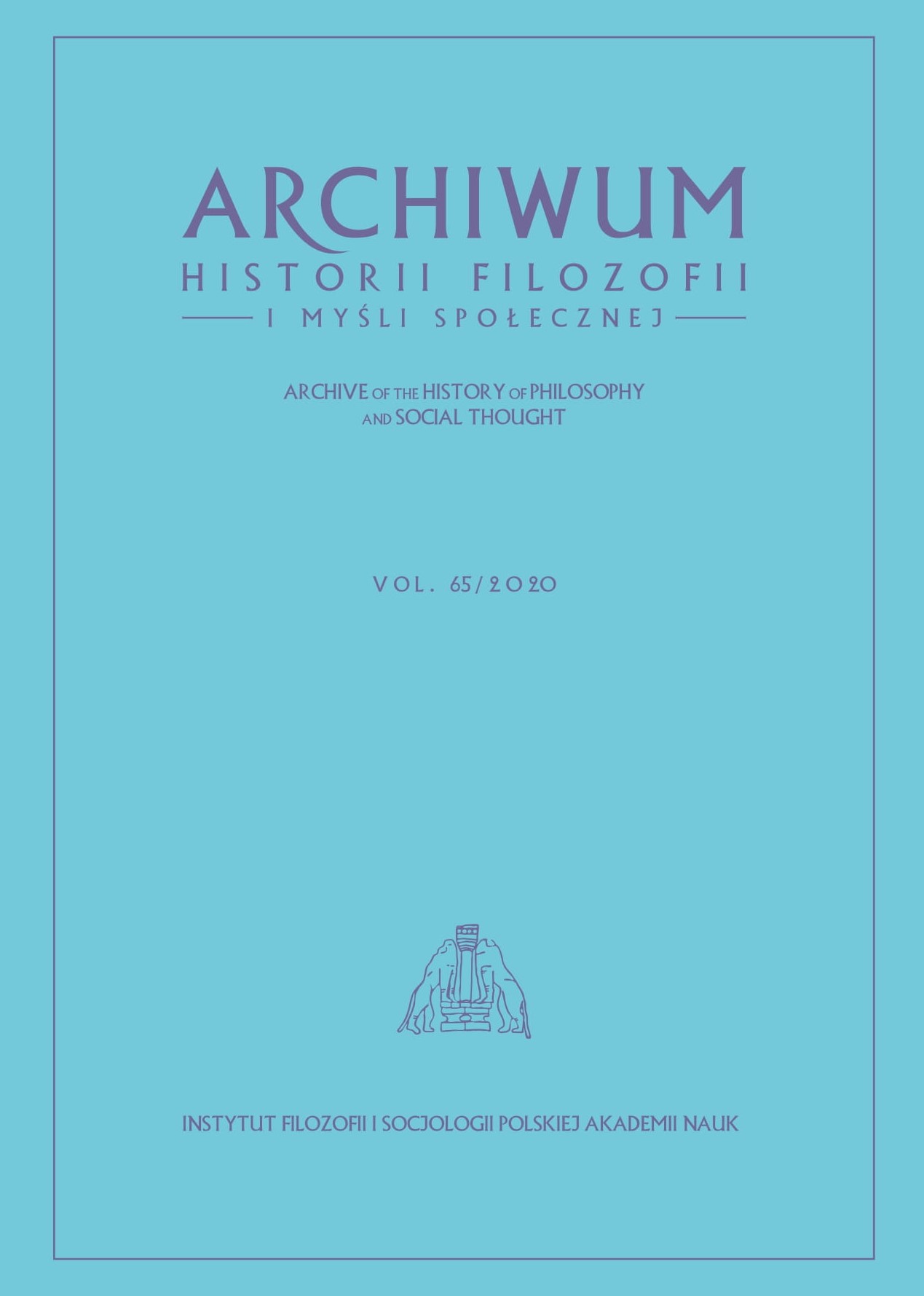La nécessité, la liberté et le hasard dans la philosophie de Diderot
Necessity, Freedom and Chance in Diderot’s Philosophy
Author(s): Marian SkrzypekSubject(s): Social Philosophy
Published by: Instytut Filozofii i Socjologii Polskiej Akademii Nauk
Keywords: Diderot; Spinosa; necessity; freedom; chance; French Revolution
Summary/Abstract: Diderot’s deliberations on freedom and necessity are originally placed in stoic and Spinosian traditions, which regard the world holistically as one great entirety ruled by universal determinism. Turning to Lucretius’ materialism and his concept of atom declination, which allows for the existence of freedom in the world, was an attempt to move beyond the fatalism of those traditions.Further deliberations by Diderot, which concern freedom and necessity refer, anonymously yet most intensively, to Seneca (Ducunt volentem fata, nolentem trahunt), and to Spinosa, with his perception of freedom as understood necessity. However, Diderot goes beyond the great static entirety of Ethics, identifi ed with Nature or with God, where universal determinism excludes randomness, whose sphere is nevertheless limited by rational cognition. By taking up this issue, Diderot approaches humanism. If God is free, because He acts in accordance with the necessity of His nature, this can also be applied to a man.Moving from the sphere of objective to subjective determinants of human fate, Diderot points to the role of morality, disinterested, spontaneous aesthetic experiences and love, which overlap the outside determinants and, together with the latter, create us as a whole. In this whole freedom as understood necessity condition each other.Using the Platonic category of enthusiasm which, in Diderot’s thought, went beyond stoic apathy, was an important moment in exposing subjective aspects of determinism. His enthusiasts are extraordinary people, who are capable of creating brilliant works of art, while in politics they are able to do a great deal of good, but also a great deal of evil. Such persons, as enthusiasts of freedom and tyrannicides, for example Brutus or Cromwell, appear in history on the random principle. Diderot’s deliberations on chance in history herald the pathos of the French Revolution.
Journal: Archiwum Historii Filozofii i Myśli Społecznej
- Issue Year: 65/2020
- Issue No: 65
- Page Range: 83-94
- Page Count: 12
- Language: English

